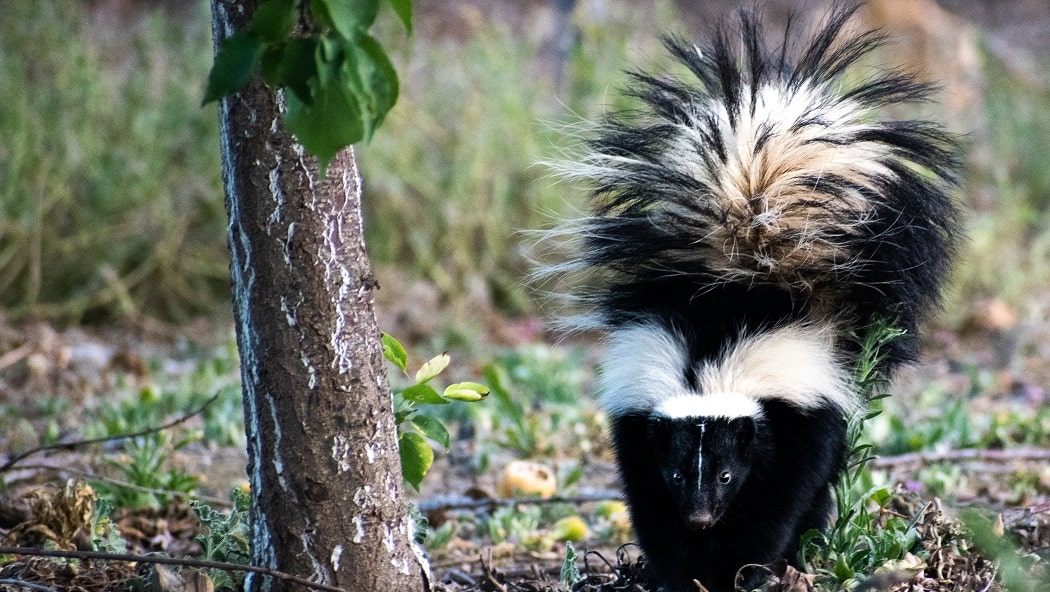Skunk Diseases and Risks of Intrusion
Skunks are small animals but can cause serious property damage, or worse, spread disease. Skunks are the primary carriers of rabies in the United States and pose a serious risk to humans and their pets. Skunks are also skilled diggers and create deep burrows that can threaten the structures of homes and businesses.
Diseases/Rabies
Skunks are particularly susceptible to the rabies virus, which they are then able to transmit to humans or pets. It is important to note that skunks do not transmit rabies through their spray. They are able to transmit the dangerous disease through saliva, most commonly through biting.
Rabid skunks are marked by aggression, wandering during daytime hours, muscle tremors or paralysis, excess salivation, and may appear approachable. It is possible for an infected skunk to not exhibit symptoms for weeks, which means all skunks are potentially dangerous and should be avoided.
There are rabies vaccines available for dogs and cats.
Property Damage

Skunk Burrows
The front claws of skunks give them perfect tools for digging. Skunks will build burrows and tunnels under buildings, sheds, decks, and concrete foundations. These burrows can threaten the structural integrity of homes and businesses, but they also can provide access inside.
Skunk Holes
Skunk holes differ from skunk burrows. Skunk holes are shallower than burrows and have loosened dirt.
Skunks will dig holes in your yard searching for food. Skunks are omnivores. They eat insects, mice, shrews, ground squirrels, young rabbits, eggs, and various plants.
Skunk Spray and Odor

The odor left from a skunk’s spray is extremely difficult to get rid of and can damage furniture, flooring, and paint. If a skunk is nesting under an outdoor deck, any outdoor furniture is also at risk.
Skunks use their spray as a last line of defense against predators. The spray’s intensely pungent odor comes from thiol, a chemical compound mainly composed of sulfur and hydrogen. Skunks are capable of accurately spraying up to 12 feet. The spray is intended to give a skunk cover to escape, but it is not lethal unless ingested in abnormally high doses. If you or your pet is sprayed, it may cause eye irritation, nausea, or vomiting.
If you suspect you have a skunk on your residential or commercial property, contact Critter Control as soon as possible.